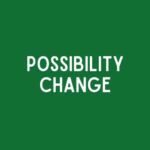In The 7 Habits of Highly Effective People, Stephen Covey gives some brilliant insights into living a truly effective life. The key is, before anything else, you must have a good foundation. This foundation is a ‘private victory,’ a self-mastery which comes before the success we aspire to achieve in our interdependent social environments – our work, our business, our family. This foundation is twofold, consisting of ‘habits’ which constitute the cornerstone of our lives. Without practicing these habits we build our life on quicksand, on the shifting, uncertain tides of a complex and ever-changing world.
When we have mastered ourselves, when we have this foundation, we need not fear change. Indeed, we can embrace it and use it creatively, integrating new learning and insight into our lives, building greater synergy and reaching higher peaks of personal and social achievement.
What Are These Twin Foundations?
First, we need to realize that we are in control. We are in the driving seat. Life does not happen to us, we happen to life. Between what goes on around us and how we respond, there is a choice – we are not Pavlov’s dogs, conditioned by our upbringing to respond automatically to our environment. True, we have been shaped by our childhood and those who were dominant in our lives at the time – we have learned to respond in certain ways to certain stimuli, but it is a tragedy that so many of us go through life acting out the old scripts we learnt when we were young. One of the greatest human attributes is our freedom to choose our response – we are not robots! – and, as such, our ability to consciously orchestrate our own experience of life.
In truth, we are pulling our own strings, we are the creators of our own reality, we are the captains of our lives. With this power, of course, comes responsibility. The sign of living an ineffective life is the abdication of responsibility to someone or something else, blaming our past, our parents, our spouse, our kids, our background, or any of a million other things. To play the victim is to give away our very humanity, our freedom. So before all else, we must accept that we are, in the words of A Course in Miracles, ‘powerful beyond measure,’ and must take responsibility for where we are in life. If we cannot get to this point, we cannot make progress, and all our attempts at success in business, family or any other area will either fail or be temporary and reversible.
Second, we need a sense of direction. When we recognize that we are the ‘captain of our soul,’ we naturally need a compass to navigate through the world. This compass is a clear set of values, guiding principles by which we live. We need a clear and constant paradigm out of which to operate, and this is one thing we must do for ourselves – there are no ‘off the peg’ solutions here, and no number of self-help books and courses will do us any good unless we take this message to heart.
Mission Statements
A mission statement is a good way to crystallize these values, and the very act of writing such a document can force us to look deeply inside ourselves, let the mud and chaos of daily life settle and identify what really matters most to us. This statement gives us a centre around which to construct our life. All of us has a centre from which we operate, though this centre often changes as we are buffeted around by the changing course of our lives and as we react to the emotional demands made on us by our significant others. Many of us inadvertently take work, money or family as our centre, but unless we are anchored in a value based paradigm, we can never truly achieve anything.
The Ego
The most pernicious of all centers is the self or the ego. Much modern ‘self-help’ material emphasizes the cult of self, suggesting implicitly that, so long as it’s alright for you and it feels good, then go for it! You can have money, cars, houses, a great relationship, anything you want – the universe is a smorgasbord of delights and we need only choose our experience. This is true, to some extent – we do control our experiences and there is nothing wrong with money, a car, a nice house or a great relationship. Far from it, these things are intrinsically good. But when they are achieved from an ego-centered paradigm, they do not give us satisfaction and lasting happiness. What is missing here is the maxim, ‘what comes around, goes around.’ We reap what we sow, and if we sow the cult of self, we reap isolation and defensiveness. By giving, by being generous, and by valuing others, we tap into the natural flow of the universe. Things come our way – money, possessions, and all that – but we do not need to cling to them. We possess them, they do not possess us. We can let go and, in so doing, the natural flow continues and more comes our way. To focus on self is to hang on, to become acquisitive and miserly and, ultimately, to cause stagnation, decay and death.
A knowledge of our own creative nature and a clear, values based compass will not, in themselves, make us successful, but without them we cannot even begin. Without them, we will be like a ship caught between a thousand lighthouses, not knowing which way to turn, impotent and stationary. Real change, real growth is possible only with this foundation in place.
Photo by Konstantinos Mavroudis




Hi Peter (and Michael),
Really enjoy your blog and your jpersonal ourney. I’ve got Covey’s book at the top of my To Be Read list now!
A book I just read helped me start on my personal mission statement. It’s The Woman’s Field Guide to Exceptional Lliving by Corrie Woods. It was a perfect blend of practical advice and deep wisdom, with space throughout for journaling as I read. I found it very helpful in my own quest to change. It is really aimed for women, but thought you would like to know about it anyway.
Best,
Linda
Hey!
Your new weblog is great! I really like the look and the name.
Keep up the good work!
Arjen
Thanks Arjan – great to hear you like the new name and look. And thank you Michael for a great article.
The 7 Habits of Highly Effective People is, out of all the books I own, the one I keep returning to over and over again. There is so much timeless wisdom within it, and for me this drives home the point that you don’t just read the great books, you study them.
Here is one of my favorite Stephen R. Covey quotes:
“The key to the ability to change is a changeless sense of who you are, what you are about and what you value.” – Stephen R. Covey
Hey Peter.
Just found your blog on the Meg’s Top 100 Aussie Blogs and really enjoying it.
Great post Michael, you make some great points! I’d like to add:
Ego
Ego is life’s roadblock! It gets in the way. In the way of relationships, personal growth, effective communication, honesty, learning and understanding. Lose the ego and we start to find our true self. Our best self. The self we like.
Choices
Every day I have the choice of having a great day… despite what happens in that day.
Every day I have the choice of seeing the good… while others find the bad.
To learn, while others complain.
To love, while others hate.
To forgive, while other make themselves sick with resentment.
I have all those choices.
Material Happiness
Having worked with some obscenely rich folk over the years, I can tell you with absolute certainty that there is no universal correlation between increased material wealth and increased happiness. And no, financial wealth and happiness are not necessarily mutually exclusive either.
Keep up the great work guys!
Micheal –
Awesome post. I agree with you that 1) We shape our own destiny – we own our own failures and successes 2) We need to be responsible by knowing our true purpose and 3) controlling vices like ego out of our way to transform our life mission into a pleasure experience not just for us but for everyone who come across our pathway.
Shilpan